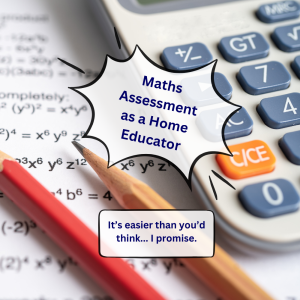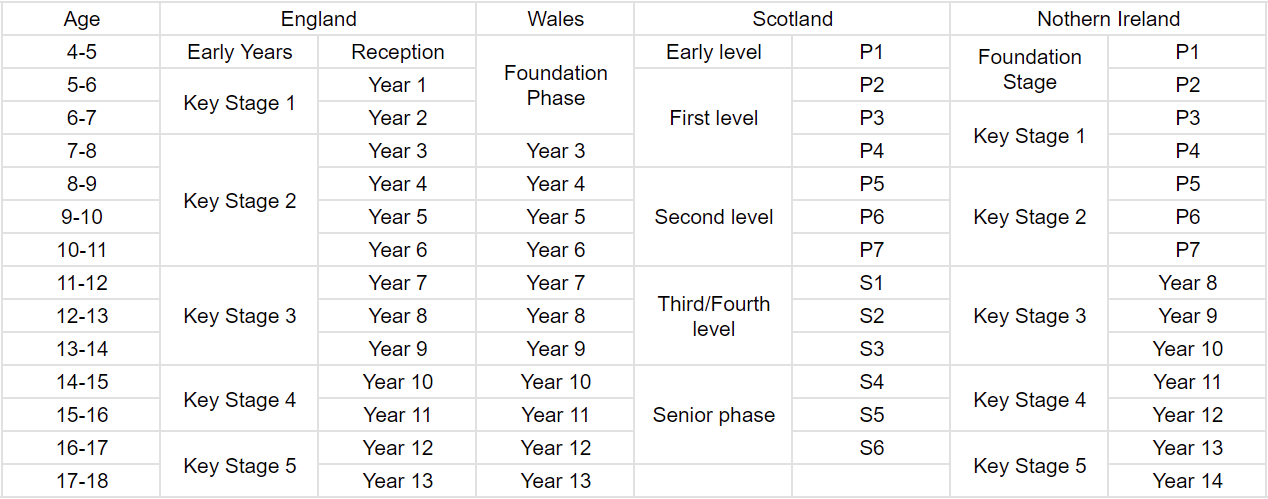 Children in schools go through plenty of reports (I'd say too many) all the time to quantify and summarise their knowledge. It's good to know what our strengths and weaknesses are, so if not overdone, an assessment is a useful thing.
Children in schools go through plenty of reports (I'd say too many) all the time to quantify and summarise their knowledge. It's good to know what our strengths and weaknesses are, so if not overdone, an assessment is a useful thing.
But how do you get one when you home educate your child? Let me give you some ideas on how you can find you what your child's maths level is right now.
Even if home educating, curriculum-based assessments can be very helpful when you want to find your child's current maths level.
The learning pathways can vary greatly, and that's one of the reasons that makes home education so exciting and so often a favoured alternative to school-based learning. You can slow down the pace or accelerate the learning because you can make the learning suitable for your child's needs. Your child won't need to fit in the usual and expected specifics and criteria. That's all great, right?
Hence while it doesn't matter that much if they're "behind" or "ahead" of their age, it's good to know what maths they actually know at the moment.
And here goes the use of various curriculum-based test papers.
If you do any self-assessment, you don't have to worry about too in-depth marking and exam techniques. A simple tick or cross according to the mark scheme will tell you what your child's strengths and weaknesses are at the moment. And you can start (or continue) your maths home education journey from the right place.
Firstly, what Year and Key Stage "should" your child be in according to their age?
Have a look at this comparison table, comparing the ages of students and related school years across the whole UK.
The table below is just a guidance, school curricula do change and evolve, I tried to compose an up-to-date comparison for all four countries in the UK.

I'm mainly familiar with English and Scottish curricula, therefore most of my advice below relates to these two.
In early years and KS1, (foundation stage/phase, early/first level...) play, play, play! Maths is fun, and exciting, and your child can explore it with almost all their senses - especially with various manipulatives (I don't recommend chewing on building blocks but hey, whatever works). I don't believe any assessment is really needed at this stage. You just want to get the basic numeracy and other topics in place and build a foundation which makes your child think "maths is cool", not dreadful and not full of assessments.
For KS2, you might want to look at SAT papers. SAT in Year 6 is now mainly an indicator for each school, how their teaching is, and doesn't have any significant impact on the students (unlike in the past). It summarises what should children learn by the end of Primary school.
You can find past SAT papers for example here.
If you follow the Curriculum for Excellence in Scotland, you can get a baseline assessment for each year or Primary from Twinkl. You can opt just for a one-month subscription - this is especially useful if you have two or more children as you can download more tests, so the one-month subscription will pay off, and then you can cancel it. Or keep it on as there are loads of great resources.
I'm working on creating free assessments, which I will add eventually. Alternatively, KS2 SATs for English students are quite a good baseline for P6/P7 students in Scotland too.
For KS3, I often advise (and use with my own students) a Foundation GCSE past paper (it can also be iGCSE - more about this in >> this article << when I talk about various exams). For a more in-depth check of a wider variety of topics, your child can do all papers from the whole set (2 or 3 papers - depending on the exam).
For KS4, it can be either a Foundation or a Higher tier of GCSE (iGCSE), depending on what would your child will likely aim for.
You can find past GCSE papers for example here.
And past iGCSE papers for example here.
For Scottish students who would be in Secondary, I'd advise using Nat 4 past papers for S1/S2, and in S3/S4 Nat 5 might be the expected exam you would want to aim for soon, hence see how your child can tackle these exam papers at this point.
You can find past Nat 4 papers for example here.
And past Nat 5 papers for example here.
Are you interested in something more fancy and with less manual marking involved? Perhaps you're not sure if you're up to the task.
Well, I bet you are, it's usually really easy to follow the mark scheme - if you just tick or cross the answers. No more fuss with finding actual marks for the method used and accuracy and whether the marks depend on previous work shown, etc.
But you might perhaps still want to do the assessment in a different way. If that's the case, I have something for you.
I offer 30-day trial of a student account under my teacher's license in an online program called IXL. There's a great tool called Diagnostic which offers an extremely in-depth assessment. I use this diagnostic pathway usually with my new students but I want to offer help to more home educators.
You might want to just do the Diagnostic, you can save the report and with no obligation, in 30 days, you're account will be closed and you don't have to pay anything.
You can also trial this yourself - you can create your own account. At the time of writing this article, there's a 30-day money back guarantee on the IXL website, so it can work out as a free trial. With my offer, you don't even have to use your credit card, I'll create the student account for you hassle-free. If you decide to take any lessons, classes or paid services with me, you'll also keep your IXL student account and can practice more as long as you're a client of mine.
You just need to get in touch and ask for help with a maths assessment for your child.
I hope this was a helpful guide for your home education maths journey.
If you have any more questions about how to assess your child's current maths knowledge, you can join my Facebook groups for Home Educators - Home Educate Maths - to get answers for this and any further maths and home education-related questions.



